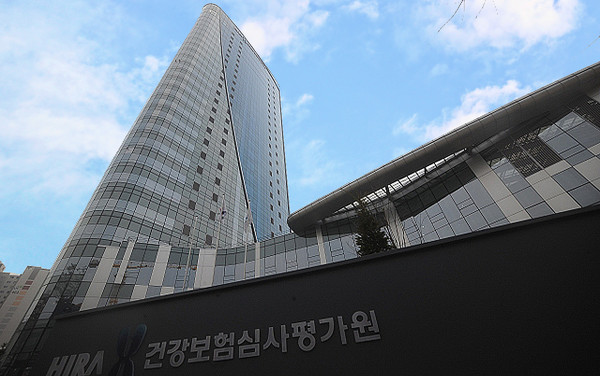Merck's Tepmetko (tepotinib) for advanced or metastatic non-small cell lung cancer (NSCLC), GSK's Jemperli (dostalimumab) for endometrial cancer, and Kyowa Kirin's neutropenia treatment Neulasta Prefilled Syringe (pegfilgrastim) have passed the Cancer Disease Review Committee (CDRC) of the Health Insurance Review and Assessment Service (HIRA), the first gateway to health insurance coverage.

Servier's Tibsovo (ivosidenib) managed to set reimbursement standards in combination with azacitidine for acute myeloid leukemia but failed as a monotherapy for metastatic cholangiocarcinoma.
Lilly's Verzenio (abemaciclib), which made its third attempt to expand coverage for adjuvant treatment of early breast cancer in combination with endocrine therapy, also failed to set reimbursement standards.
HIRA held a cancer review panel meeting on Wednesday to discuss reimbursement standards for drugs used for cancer patients.
As a result, Merck's Tepmetko for locally advanced or metastatic NSCLC with confirmed MET exon 14 deletion (skipping) succeeded in setting the reimbursement standard, crossing the first gateway to health insurance reimbursement in its third attempt.
Tepmetko, a MET inhibitor approved by the Ministry of Food and Drug Safety (MFDS) in November 2021, filed unsuccessful coverage challenges in February 2023 and March this year.
GSK's Jemperli, approved by the MFDS in March this year for treating adult patients with newly diagnosed advanced or recurrent mismatch repair-deficient (dMMR)/high microsatellite instability-high (MSI-H) endometrial cancer in combination with platinum-based chemotherapy and attempted to expand benefits for it this time, also succeeded in setting reimbursement standards.
Jemperli won the MFDS nod in December 2022 for treating adult patients with advanced or recurrent dMMR/MSI-H endometrial cancer who are on or have progressed after prior platinum-based systemic chemotherapy and was reimbursed in the same patient population a year later.
Kyowa Kirin Korea’s Neulasta Prefilled Syringe also passed the CDRC for treating febrile neutropenia and reducing the duration of neutropenia in patients receiving cytotoxic chemotherapy for malignant tumors.
Servier's Tibsovo, which targets the IDH1 (isocitrate dehydrogenase 1) gene mutation and is indicated as monotherapy in adult patients with previously treated locally advanced or metastatic cholangiocarcinoma and in combination with azacitidine in adult patients with acute myeloid leukemia (AML) who are 75 years of age or older or who have comorbidities that make them ineligible for intensive induction chemotherapy, was approved for coverage in AML but not in cholangiocarcinoma.
That was disappointing, given that Tibsovo is the only targeted therapy recommended as a second-line treatment for cholangiocarcinoma in Category 1, the highest level of recommendation by the U.S. National Comprehensive Cancer Network (NCCN).
Lilly's expanded coverage for Verzenio in combination with endocrine therapy as an adjuvant treatment for adult patients with hormone receptor (HR)-positive, human epidermal growth factor receptor 2 (HER2)-negative, lymph node-positive, early-stage breast cancer at high risk of recurrence also failed.
The company made a challenge in May last year and March this year, but its third attempt was not accepted. It was decided that only endocrine therapy would be partially paid out-of-pocket.
Related articles
- DKSH Korea to acquire Kyowa Kirin Korea's specialty pharmaceutical unit
- GSK Korea expands indication for Jemperli in endometrial cancer treatment
- Merck Biopharma continues to provide innovative treatments to Korean patients despite external headwinds: GM
- Reimbursement OKed for Lilly's Jaypirca, coverage for Janssen's Zytiga, Pfizer's Lorviqua expanded
- Two experts agree Verzenio increases chances of cure for women with high risk of early breast cancer
- Latecomer Jemperli wins reimbursement race against Keytruda for endometrial cancer in Korea

